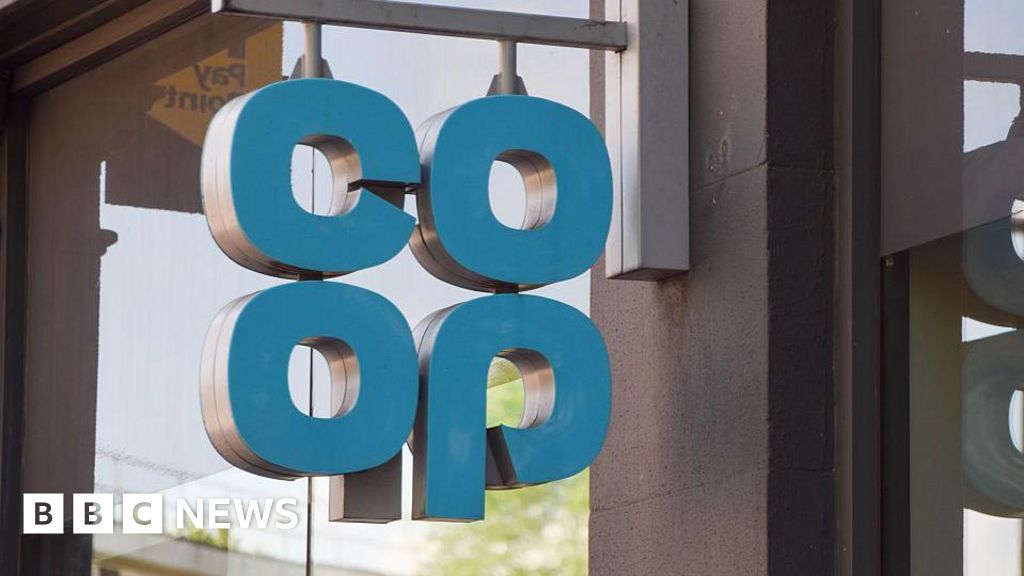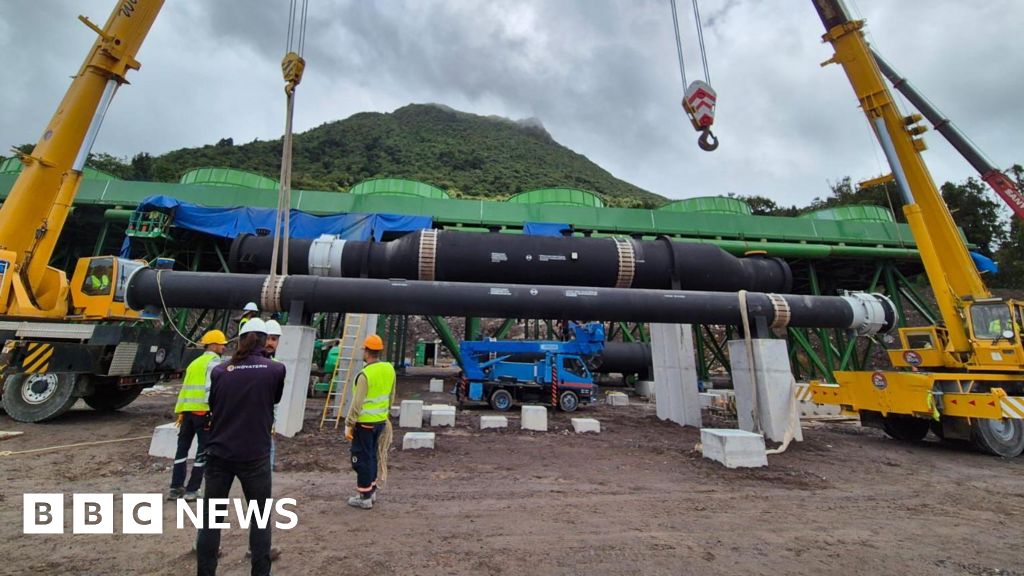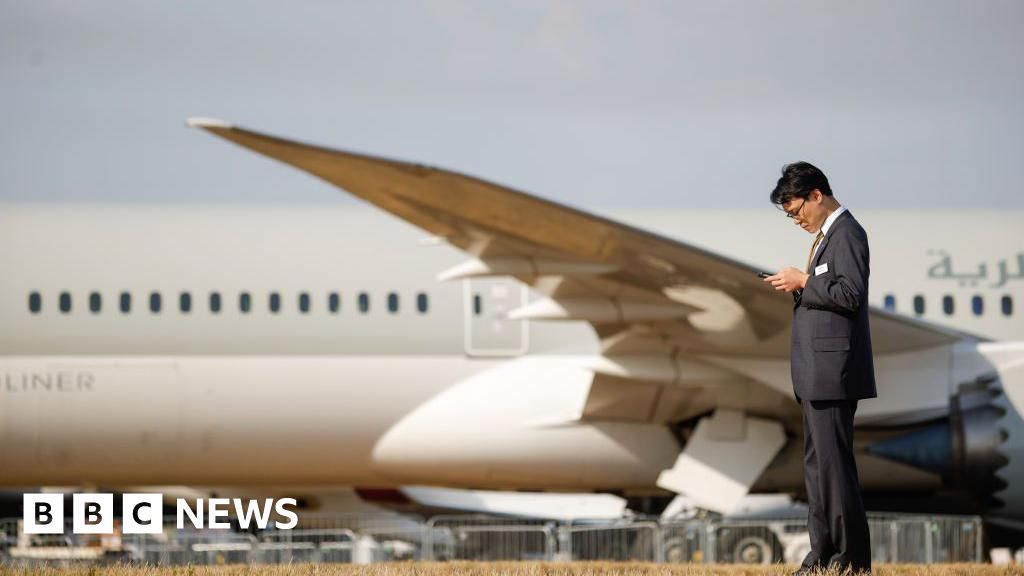ARTICLE AD BOX
By Emma Simpson
Business correspondent, BBC News
Michael Murray is one of the UK's youngest FTSE 250 chief executives
The new boss of Sports Direct has claimed the High Street isn't dead, with plans to open up to 10 new flagship stores across the UK.
Michael Murray has taken over from Mike Ashley - his future father-in-law - as chief executive of Frasers Group.
But in his first interview in the job he told the BBC Mr Ashley was "not pulling the strings".
He also warned costs were "going through the roof" so the firm would likely have to put up prices.
At the age of 32, Mr Murray has become one of the youngest chief executives among FTSE 250 companies after a meteoric rise to the top of one of the UK's biggest retailers.
He said Mr Ashley was a "genius of his generation", but said it required a "different type of genius and a different type of mindset what takes us forward into the next generation".
"What I want to do is to build on the retail excellence which Mike's created over the last 40 years and build a business that's fit for purpose for the next forty years," he said.
"It's really as simple as that."
Speaking to the BBC ahead of Sports Direct opening its new Birmingham store on Friday, Mr Murray said he believed Britain's High Street's weren't "dead", but said they would be "different".
"I believe if you give people a reason to come and shop, they will shop. They've just not had a reason for the past few years," he added.
Over four floors, Birmingham's new Sports Direct looks like a high-tech department store for sport and fitness - a world away from traditional stores. It includes an E-sports gaming room, a sports bra fitting service, as well as Evans Cycles and a Game concession.
"It's cost more than £10m. It's a huge investment in the High Street," Mr Murray said.
Image source, JonathanTaylor/SportsDirect
Image caption,Birmingham's new look Sports Direct opens on Friday
London's Oxford Street store was the first new look Sports Direct unveiled last year and Mr Murray said there's room for up to 10 of the big regional, experiential stores.
It's a big bet on the future of the High Street.
However, re-imagining shops isn't just about enticing customers in. One of Mr Murray's biggest challenges is persuading his major brands, Nike and Adidas, to supply the most-desirable trainers and tracksuits.
It's a journey, he claimed, is going "very well".
"If we'd done this five or six years ago it would've looked a completely different store because you wouldn't have had the product to put in it," he said.
Mr Murray, who is engaged to Mr Ashley's eldest daughter, has been leading efforts to modernise the business in a bid to appeal to younger shoppers.
Before he took over as chief executive, he wasn't an employee of Sports Direct, nor did he have a seat on the board.
He earned millions of pounds in consultancy fees linked to a host of property deals he made for the group.
Mr Murray brushed off accusations that he only got the job through his connections to former Newcastle United owner Mr Ashley - who founded Sports Direct in 1982 and is still the majority shareholder of the firm's empire, which includes House of Frasers, Flannels and Jack Wills.
"I've definitely proved myself and my worth to the group. I think we've achieved so much over the last few years...Mike would never put me up to a job which he didn't think I could excel in because I don't think it'd be very popular around the dinner table," Mr Murray said.
Image source, PA
Image caption,Mike Ashley founded Sports Direct in 1982
So is Mr Ashley still pulling the strings?
"No Mike is not pulling the strings," said Mr Murray.
"We've worked in a partnership, a very collaborative one over the last two to three years...we have vocal debates. We agree, we disagree. But ultimately the decision lies with me on the outcome of where we take the company.
"I'm definitely my own man."
Mr Murray said he would bring clarity to the business, saying the retailer had been "misunderstood with maybe more of a scattergun approach in the past".
But as Mr Murray attempts to fill the shoes of his future father-in-law, he faces a particularly challenging time with rising costs and a squeeze on household incomes.
And although Sports Direct stores pride themselves on countless deals and offers, Mr Murray admitted prices will likely rise.
"In terms of the pricing of product, we are very much at the mercy of our brand partners," he said.
"They decide the price they want to sell the goods for and we will increase the prices as and when the brands ask us or recommend us to do so."
He also believes people will spend less and not buy for the sake of it, but spend on "aspirational" items instead.
There have been no shortage of shoppers splashing out hundreds of pounds for a t-shirt in Flannels, the designer fashion chain, which Mr Murray said is a fast growing part of the business.
"The luxury brands have just been severely underserved in regional markets. Before, there was nowhere really to buy that product. And every time we open a new store in a regional town or city, it far exceeds our expectation."
But what's the plan for the remaining 43 House of Fraser shops? Mike Ashley snapped up the department store chain after it collapsed in 2018 and vowed to turn into the Harrods of the High Street.
Mr Murray doesn't yet know how many will be kept. He admitted some of the stores need to be reduced in size or moved.
But the incentive to succeed couldn't be bigger. Mr Murray is in line for a £100m pay-out if he can more than double the share price to £15 within the next three years.
"I wouldn't have signed up to it if I didn't believe we've got a very strong strategy."

 3 years ago
60
3 years ago
60








 English (US) ·
English (US) ·